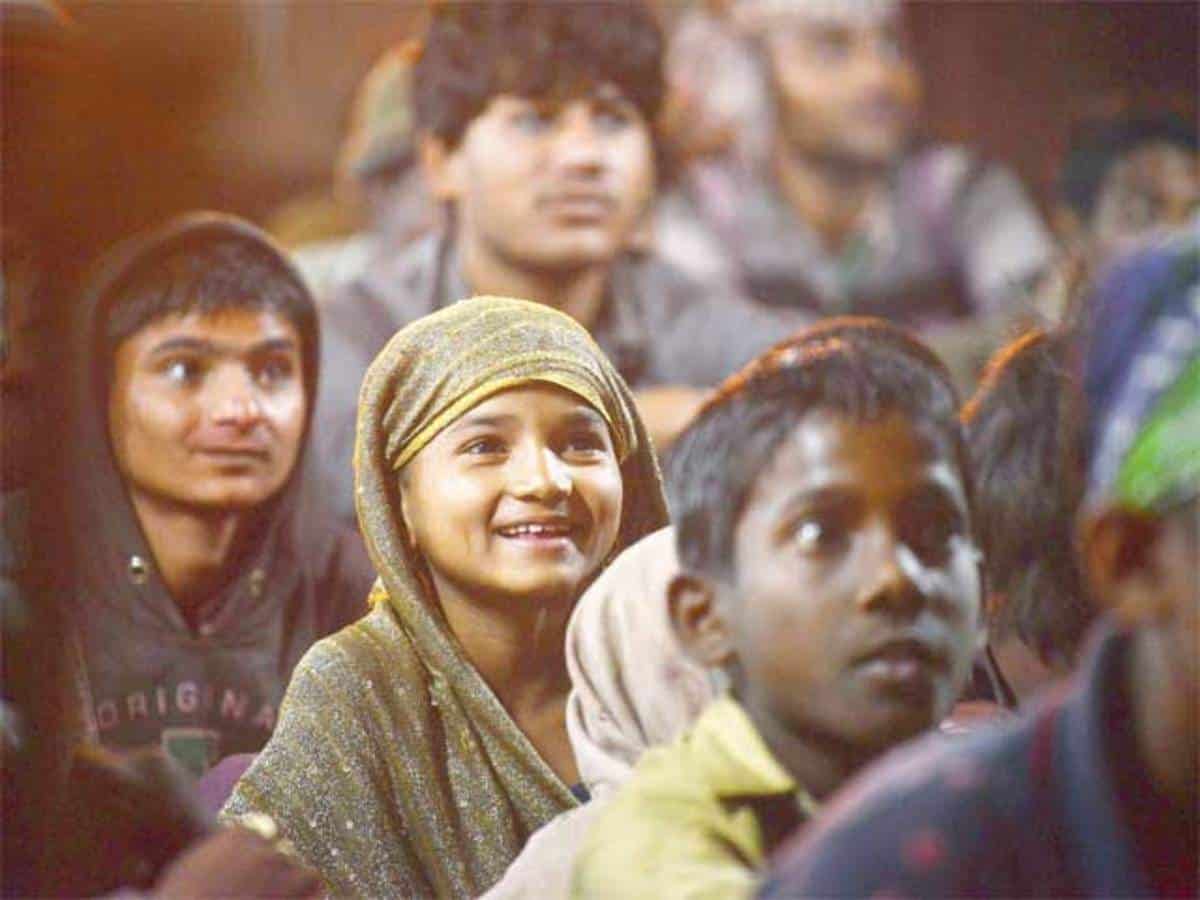
Hyderabad: In the wake of atrocities against children, there is a need to strengthen our understanding of child rights. As such, Siasat.com reached out to Mohua Chatterjee, General Manager Development Support Child Rights and You (CRY) Program head of the Eastern Operations for an overview of the problems child rights activists have to deal with.
Speaking about the significance of child rights, Chatterjee said, “Children are an intrinsic part of the society and hence child rights are an integral part of human rights.”
Chatterjee further said that countries around the world formulate child rights based on the guidelines drawn by the United Nations Convention on Rights of Children (UNCRC). The CRY official emphasised the importance of education, which would help spread awareness regarding child rights.
The lack of funds towards child protection services
The Union Ministry of Women and Child welfare has been allocated meager funds under the Integrated Child Development Services (ICDS). The ministry’s budget for the 2021-22 was Rs 20.105 crore, and saw negligible increase in the year 2022-23 to Rs 20.263 crore.
Adressing the issue Chatterjee said, “Given the number of children and the number of areas any child rights organisation works on, the current budget is certainly not enough. We have been preparing estimates on an annual basis and presetting them to the authorities seeking an increase in funds,” she remarked.
The 2022-23 Union budget’s concern for child rights
CRY has released a statement on the lack of funds under ICDS. A portion of the statement discussed the budget speech:
“The budget speech states that “India’s economic growth in the current year is estimated to be 9.2 per cent, highest among all large economies. As India marks ‘Azadi ka Amrit Mahotsav’, and enters “AmritKaal, the 25-year-long lead-up to India@100’…This Budget seeks to lay the foundation and give a blueprint to steer the economy over the AmritKaal of the next 25 years, from India at 75 to India at 100. It continues to build on the vision drawn in the Budget of 2021-22.”
“Such remarks at the very beginning of the budget speech indeed built expectations that the declining trend in Child Budget would be reversed. With the promise of a budget that would be ‘futuristic and inclusive’ and looking towards building a strong and resilient nation in the next 25 years, the assumption was that children, being the future generation, would feature strongly in the nation’s priority.”
Child sexual abuse
Addressing the issue of child sexual abuse, Chatterjee said “Child sexual abuse is one of the most challenging issues we often come across.” She further said, “Cases of child sexual abuse have risen manifold since the onset of the COVID-19 pandemic”.
Sharing a few steps taken by CRY to ensure the prevention of child sexual abuse, the manager said that the organisation has been working closely with Village Level Child Protection Committees (VLCPC). The VLCPCs reach out to families in their respective villages and educate them about the seriousness of the issue and the methods to tackle it.
The manager then highlighted the importance of laws such as Protection of Children from Sexual Offences (POCSO) Act of 2012 and the Juvenile Justice Act of 2015. The manager further said, “We have created Children and Adult collectives which are present across the country to spread awareness and prevent the violation of child rights. Members of the two collectives, actively participate in prevention of child sexual abuse.
Child labour
Shedding light on the issues of child labour the manager said that education alone can save children from the trap.
The lack of money, has also plays a major factor in children being pushed into beedi making and cracker manufacturing factories. It is our collective responsibility to create awareness about education. There is a need to instill the belief in people that schools are safe spaces, which could help children grow.
The Lacuna in implementation of child rights
Speaking of the challenges to implementation of child rights, Chatterjee listed out three major reasons:
1 There are certain functional issues in the structure entrusted with implementation of child rights.
2 Most organisations are short staffed, and there is evident lack of accountability
3 The need to monitor the grass roots implementation of the government schemes, including sensitisation programs and ensuring that the allowances allocated to families reach them in time.
A study published by The Lancet in February-2022 alone argued that close to 19 lakh children were orphaned in India. As such, there is a pressing need to address how as a society, we view children.
